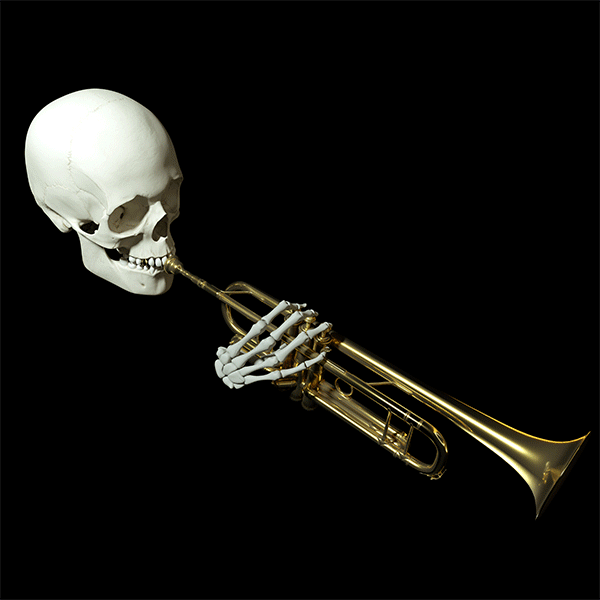Hello all, this is the first post in a series of posts I’ll be making weekly to drum up some diverse discussion relating to all different aspects of gaming. I figured I would start with what I know, and so the first topic is thus: roguelike games. (If you think any of the below description is wrong or misleading, let me know - that’s part of the discussion!)
The name of this genre is derived from the game Rogue, released in 1980. The exact definition of a roguelike has been a topic of discussion for a long time, but the core tenets are usually agreed upon to be random/procedural generation and permanent death (no saving and continuing a run, you have to start over). Many roguelikes have an additional increased focus on collecting items and assembling a “build” over the course of a run. A “pure” roguelike is often claimed to have no meta-progression (that is, no procedural unlocks) and focus more on the journey than the destination - seeing how far you can get, or how high a score you can achieve, rather than reaching a distinct victory condition (not that these games don’t have victory conditions, but that it isn’t the end-all-be-all). The secondary term “roguelite” is often brought out to describe games that deviate from this. Additionally, the term “traditional roguelike” is sometimes employed to indicate a more strict adherence to the older style of this genre, with grid-based dungeon crawling and high complexity. Ultimately, as with a lot of genres, pinning down a 100% ironclad definition is near impossible, but most people that like this type of game could tell you the general “vibe” at a glance.
Here are some questions and subtopics that I encourage people to discuss:
- What are some of your favorite examples of roguelike games?
- What roguelike games do you think stand out in terms of defying the conventions of the genre?
- Do you find there to be a meaningful difference between the usage of “roguelike” and “roguelite” nowadays? Which do you prefer? Where does the “traditional roguelike” fit into this?
- Do you continue to play roguelike games after reaching the “end” / reaching 100% completion? Why, or why not?
- What other genre do you most often enjoy seeing paired with roguelike?
- Is any game with procedural generation and a run-based structure a roguelike, or is there more to it? Where do you personally draw the line?
- What have been some of your best runs across all roguelike games? What’s been memorable?
- Are there any upcoming roguelike games you’re excited for?
Also feel free to bring up anything you like related to the topic! If you have suggestions for future discussion topics, leave them in the suggestion thread.
Additional Resources
-
Roguebasin, a wiki dedicated to roguelikes (specifically traditional roguelikes)
-
List of all Weekly Discussion Topics(this is the first one, be patient!)


Before I get into curmudgeon mode, I want to plug my two favorite roguelikes:
With that out of the way, let’s move on to “old man yells at Rogue Legacy”:
The term “roguelike” has been stretched to the point of uselessness, often for marketing purposes. This necessitated the introduction of the term “traditional roguelike” for those of us that still want to discuss actual roguelikes. Binding of Isaac, Dwarf Fortess (fortress mode), Dead Cells, and Slay the Spire are all excellent games, but they’re not roguelikes in any useful sense. If I’m looking for games that are “like Rogue”, none of those are good suggestions. Moria, Nethack, Pixel Dungeon, DCSS, and DoomRL are.
Cataclysm: DDA occupies a bit of a weird space here. It fits within the technical definition of a traditional roguelike, but the overall experience is more of a departure from Rogue than other traditional roguelikes are. It’s almost more akin to Minecraft or Terraria, in that you face dangers to gather resources to create items to face bigger dangers to gather more exotic resources to create more powerful items… and so on. I sometimes refer to this type of roguelike as “neotraditional”, in order to acknowledge this departure.
Before anyone accuses me of being prescriptivist, sometimes prescriptivism is important. I’m not for haranguing people over every terminological deviation, but some terms are unique and useful, and we should try not to muddy them. “Begs the question” and “reactionary” come to mind. “Roguelike” was one, but it’s pretty far gone at this point.
The trouble with “gamelike” as a descriptor is really well illustrated here. People will always disagree on how alike the games have to be for it to fit or what particular things it needs to do the same to match, while others will argue that something they play feels like game so it is now gamelike.
Early roguelike games took something rogue did first (repeating often procedural gameplay that at least mostly resets on death) and often ignored other aspects. Arguing about what exact criteria necessary or sufficient to make a game roguelike is like arguing whether a song counts as “punk” or “pop” or “metal”. Different people will feel like it does or doesn’t fit into any particular category for one or another reason, but ultimately the categories exist because some people put things in them and that’s it.